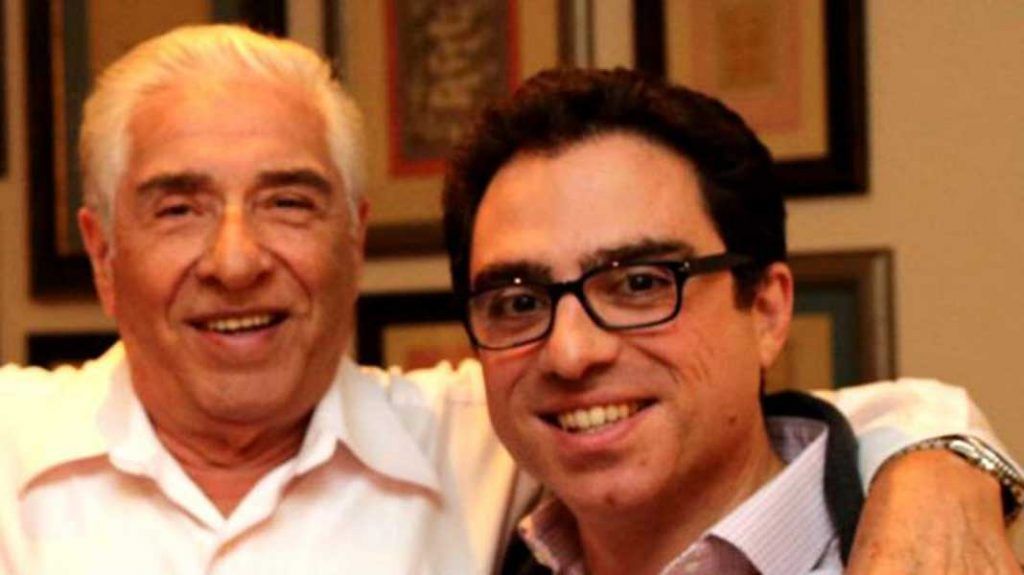March 08, 2017
By Peyman Pejman
Since declaring his candidacy for the presidency of the United States, Donald Trump has repeatedly said that his foreign policy would be vastly different from that of his predecessor, President Barack Obama. The approach to Iran is evidence of a shifting policy by the new administration. The White House is said to be working on a package that combines the overall approach to Iran. It will take into consideration anything from the Iran nuclear deal and Tehran’s pursuit of advancement of missile technology, to commercial ties between the two countries. The approach is a sharp departure from the Obama White House policy which vigorously opted for dealing with issues separately and distanced itself from a “grand bargain” approach.

While the parameters of the Trump policy towards Middle East, and Iran in particular, are unclear, an albeit-temporary casualty of the policy change is the continued detention in Iran of several Iranian-Americans, U.S. green-card holding Iranians, and Americans without any familial ties to Iran. The exact number of those detainees is not officially known. There have been reports that Tehran authorities have detained several Iranian-Americans and green-card holders in the past months, but the victims’ families have chosen not to make the arrests public.
Iran is also reportedly holding a number of dual nationals from France, Britain and Canada, as well as the retired FBI agent, Robert Levinson, who went missing in Kish Island in 2007. Iran released four Iranian-Americans, Washington Post correspondent Jason Rezaian, ex-U.S. Marine Amir Hekmati, pastor Saeed Abedini, and Nosratollah (Fred) Khosravi-Roodsari, in January 2016. At that juncture, authorities did not release Iranian-American businessman, Siamak Namazi, who has been sentenced, along with his father, Baqer, to 10 years in prison.
While the Obama administration denied a quid-pro-quo, the four hostages were released shortly after Tehran signed the nuclear Joint Comprehensive Plan of Action (JCPOA) deal with the United States, Russia, China, France, UK and Germany. Washington also sent palettes of cash worth $1.7 billion to Tehran, that was said to be settlement for claims dating back to the Shah’s time. The administration again denied that the cash transfer was linked to the nuclear deal or a bribe for the release of the hostages. Jared Genser, the Washington-based pro-bono lawyer for the Nazami family, says the Obama administration tried to secure the release of a number of the remaining hostages from Iranian jails all the way up to Trump’s inauguration. The group reportedly included Namazi, San Diego resident Gholamreza Shahini, and three green-card holders, technology specialist Nizar Zikka, Karan Vafadari, and Afarin Niasari.
“We [the Namazi team] met with U.S. government officials who were negotiating directly with Iran. We were not provided details of the negotiations. In mid-December [2016], we were just told there were serious negotiations underway and that they were specific about offers from the United States and specific responses from Iran,” Genser told Kayhan London. Those negotiations ultimately failed because the Tehran government’s “demands far outstripped the capacity and willingness of the U.S. government to deliver them,” Genser said.
According to Genser, senior State Department officials had concluded that, “Based on its final response, the Iranian government was not serious in the latter stages of the negotiations, because if they were serious, they would have accepted things that were in the capacity of the Obama administration to deliver.” Genser said he did not know the details of the Iranian demands, or whether it was directly related to any financial preconditions set by the Tehran government. “I don’t know what the full package was. I know there were a range of things that were discussed. I don’t know the specifics in terms of whether money was on the table or not. I do know there were other things they wanted that the Obama administration was not capable of delivering,” he said.
With the new US administration in place, the fate of the hostages in Iranian jails has entered a prolonged period of uncertainty. “What I can say is that the Iranian foreign ministry has publicly said in the last 48 hours that there are no direct discussions underway between the United States and Iran through any channels,” said Genser. “We were informed … the United States is rapidly developing an Iran policy and the hostages will figure prominently in it. We were assured that their release would be a top priority for the Trump administration.”
What can be stated with certainty is that the fate of those prisoners has gained the personal attention of the president. On Oct. 26, 2016, candidate Trump, emphasizing some words in bold, tweeted: “Well, Iran has done it again. Taken two of our people and asking for a fortune for their release. This doesn’t happen if I’m president!” He did not specify to whom he was referring.
For now, the fate of his clients, the Namazi father and son, are tied with that of the rest of the hostages, and that is how the family wants it according to Genser. Although there have been reports that the family tried to use private channels, and at times did not wish the case of the father and son to be bundled with the rest of the hostages who were released in 2016, Genser said that was not the case. He added, “Public reporting by unnamed State Department officials had suggested that Siamak’s family had their own channels or did not want to be part of the discussions. That’s absolutely, totally, and completely false and we are only correcting the record now because the previous administration is gone, and also because we had very high level engagement, so there was no point in criticizing the prior administration publicly.”
Regardless of the veracity or inaccuracy of media reports about the intentions of the Namazi family, such assumptions are irrelevant now. “We are not aware of any ongoing discussions, directly or indirectly, except simple expressions of concern. Absolutely no negotiations,” admitted Genser.








